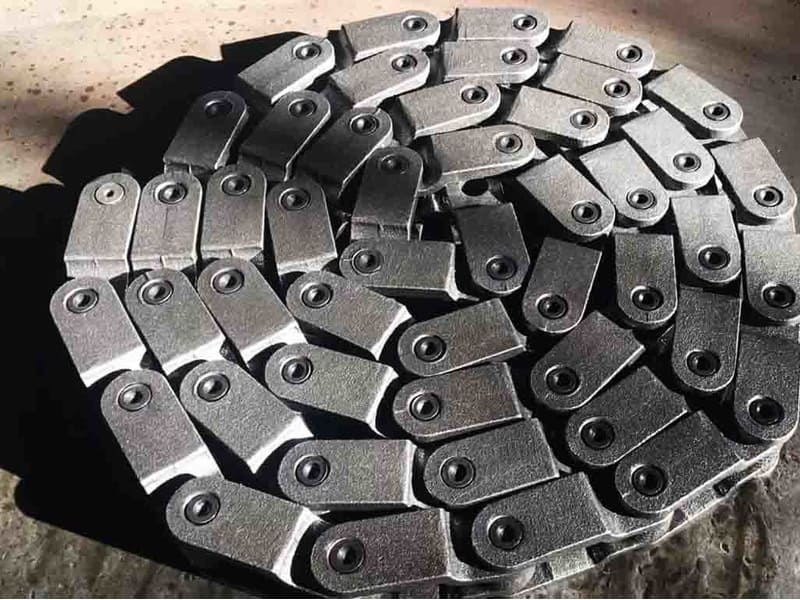LPG Conveyor Chain Systems: Dry vs. Wet Operations

Article content
In LPG filling lines, selecting the right conveyor chain not only affects operational performance but also determines long-term maintenance costs. LPG bottle chains, including the CC600 type, are categorized into two main types: dry and wet-running. Each type has its own pros and cons, suited for different operating conditions.
Wet-Running LPG Conveyor Chain
The CC600 wet-running chain is lubricated with black soap or soapy water mixed with grease. This type of conveyor chain offers two critical benefits:
Advantages of Wet-Running Conveyor Chains
- Smooth Operation: Lubrication allows the gas conveyor chain to move smoothly, reducing wear and extending the system's life.
- Explosion Safety: The wet-running CC600 chain minimizes the risk of sparks, ensuring safety in environments with flammable gas.
Disadvantages of Wet-Running Conveyor Chains
- Greasy Residue Build-Up: Soapy water evaporates, leaving greasy residue that requires frequent cleaning to maintain conveyor efficiency.
- Slippery Floors: Spilled soap can make floors slippery, posing a safety risk to employees.
- Dirt Accumulation: Grease in the soap can attract dust from gas bottles, demanding more thorough cleaning and maintenance.
Dry-Running LPG Conveyor Chain
Dry-running CC600 chains eliminate the need for soap, using materials like Teflon or UHMWPE to reduce wear. Some benefits of dry-running conveyor chains include:
Advantages of Dry-Running Conveyor Chains
- Simplified Maintenance: No soapy residue means less maintenance and cleaning are required.
- Ideal for Water-Scarce Areas: Dry-running systems are perfect for regions like the Middle East, where water is a precious resource.
- Cost Savings on Equipment: There’s no need for additional equipment like mixing tanks or pumps, reducing maintenance-related costs.
Disadvantages of Dry-Running Conveyor Chains
- Faster Wear: Without the protective lubrication layer, dry-running CC600 chains may wear out faster than wet systems.
Optimal Choice for LPG bottling Filling Lines
Choosing between a dry or wet gas conveyor chain depends on the operational conditions and specific plant requirements. For facilities with strict explosion safety standards and abundant water resources, wet-running chains may be the better option. However, dry-running chains offer a cost-effective solution for areas with limited water availability and simplified maintenance needs.
The CC600 chains from LDCOM are specially designed to optimize performance for both types of systems. These products not only deliver superior durability but also require less maintenance compared to other LPG bottle conveyor chains on the market, helping you maintain continuous and efficient operations.



AAdministratorsQTV
Welcome. Feel free to leave a comment, we will respond soon